Hawaii
Bachelorette’s Garrett Yrigoyen Marries Alex Farrar in Hawaii

The Bachelorette alum Garrett Yrigoyen and Alex Farrar are officially married — and basking in newlywed bliss.
Yrigoyen, 34, and Farrar are currently celebrating their honeymoon in Kauai, Hawaii, a source exclusively tells Us Weekly. The insider notes that Farrar is “having a great time” while hanging out at the pool, toasting the couple’s recent nuptials.
The eyewitness tells Us that the newlyweds are having an “amazing time” during the getaway. “They are all over each other, kissing, snugging and looking every bit [like] newlyweds,” the source says. “They’ve been spending a lot of time sipping cocktails by the pool and going for swims.”
Yrigoyen, who won Becca Kufrin’s season 14 of The Bachelorette, and Farrar tied the knot earlier this month. According to social media footage shared by a local Hawaiian wedding planner, Yrigoyen and Farrar exchanged vows on the beach.
The festivities continued with a blowout reception, complete with two DJs, a saxophonist, a coconut water station and gifted leis for attendees.

Yrigoyen and Farrar went public with their romance in October 2020, weeks after he and Kufrin, 33, announced their split.
Yrigoyen met Kufrin on her season of The Bachelorette, where he ultimately proposed during the 2018 finale. After two years together, the pair decided to call off their engagement.
“Garrett and I have decided to end our engagement. After many conversations, we came to this decision. It wasn’t something that we just arrived at one night,” Kufrin said during a September 2020 episode of the “Bachelor Happy Hour” podcast, of which she hosted at the time. “It wasn’t based solely off of one Instagram post or somebody else’s opinions or comments. There’s much more to it. To any relationship, there’s a lot of layers, and it’s not for me to divulge details.”
Weeks earlier, Yrigoyen sparked backlash over his support of police officers in the midst of the Black Lives Matter movement following George Floyd’s death. Kufrin admitted on the podcast that she was torn about the future of their relationship as a result.
After Yrigoyen and Kufrin went their separate ways, his relationship with Farrar continued to heat up. Yrigoyen proposed to the yoga instructor in October 2022 during a boat ride in San Diego.
“Happy 3 years to my beautiful, smart, fun, loving, hard-working, fake harmonica playing, moon walking, car karaoke champion, yoga master, adventure co-pilot, ocean swimming, football throwing, banana pancake expert and so much more fiancé,” he wrote via Instagram in September. “Can’t wait to come back here to take this same picture with you as my wife. Love you so much.”
Kufrin, for her part, has since moved on with husband Thomas Jacobs, whom she met on Bachelor in Paradise season 7. They wed in October after welcoming their first baby, son Benson.
With reporting by Travis Cronin

Hawaii
Tabloid publisher defiant as Trump lawyer tries to shake his confidence
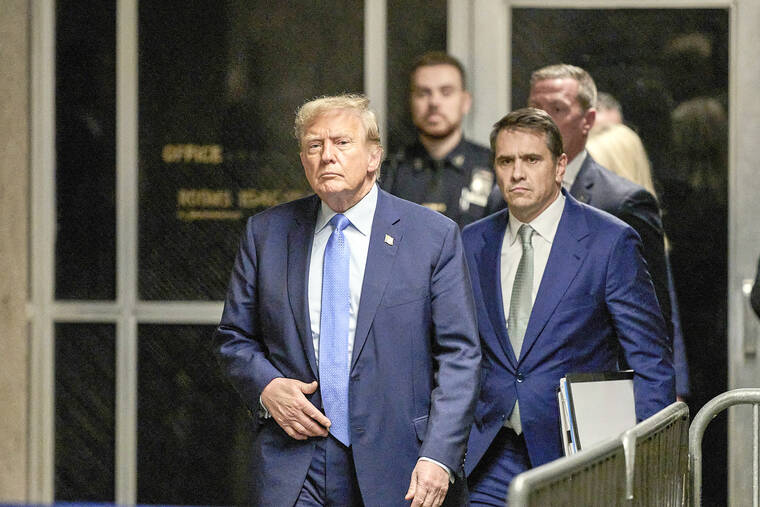
NEW YORK — Lawyers for Donald Trump on Friday grilled the former publisher of The National Enquirer, casting doubt on his explanation for why he suppressed salacious stories about the Republican presidential candidate before the 2016 election.
The witness, David Pecker, who has known Trump for decades, faced a stern cross-examination from one of the former president’s defense lawyers, Emil Bove, who pressed Pecker about two deals he had reached in 2015 and 2016 with people who were seeking to sell stories about Trump.
Bove sought to convince the jury of two fundamental points about the stories, which Pecker bought and then buried: Such arrangements, characterized by prosecutors as “catch and kill,” were standard for the publisher, and that Pecker had previously misled jurors about the details of the transactions.
In one particularly tense moment, Bove pushed Pecker to explain a seeming discrepancy between his testimony this week and notes from a 2018 interview with the FBI. Pecker testified that Trump had thanked him after the election for helping to conceal one such story, but the interview notes did not record Trump’s expression of gratitude.
Pecker, who ultimately acknowledged the inconsistency, resisted Bove’s implication that there was a contradiction and said he had been honest in his testimony.
“I know what the truth is,” Pecker said, suggesting FBI agents might have erred in their notes. “I can’t state why this is written this way. I know exactly what was said to me.”
Pecker’s testimony was crucial for the Manhattan district attorney’s office as prosecutors seek to show that Trump was part of a three-man conspiracy to bury negative stories as he worked to win the presidency. Prosecutors argue that Trump eventually falsified records to hide a third hush-money deal in order to conceal the payment that his former fixer, Michael Cohen, had made to porn actor Stormy Daniels.
The former president faces 34 felony charges and could spend four years in prison if convicted. He denies all charges.
The prosecution witnesses who followed Pecker on Friday provided a less dramatic conclusion to the trial’s first week of testimony.
Rhona Graff, Trump’s former executive assistant and gatekeeper at Trump Tower, testified about entries from the Trump Organization computer system that contained contact information for Karen McDougal, a former Playboy model, and a “Stormy.”
The day’s last witness was Gary Farro, who was Cohen’s banker when the former fixer executed financial transactions with First Republic Bank to enable the hush money payment to Daniels.
Farro will return to the witness stand Tuesday, when court resumes. He is expected to take less time testifying than Pecker, who began his four days on the stand Monday and said that he had come to an agreement with Trump and Cohen in a meeting at Trump Tower in August 2015.
There, Pecker said, he agreed to run what amounted to a covert propaganda operation for Trump, trumpeting his candidacy while publishing negative stories about his Republican opponents. Most importantly, Pecker said, he had agreed to be the campaign’s “eyes and ears,” watching out for potentially damaging stories.
On Friday, Bove called this testimony into question, arguing that Pecker’s promotion of Trump and denigration of other candidates was simply “standard operating procedure” for a tabloid, recycling titillating stories to sell magazines in supermarket checkout aisles.
Pecker agreed, without embarrassment, that such stories appeared in his publications. But he fought back several times as Bove sought to cast doubt on his credibility.
Bove focused on an August 2016 agreement that Pecker’s company, AMI, made with McDougal.
The publisher paid McDougal $150,000 to keep quiet about her story of an affair with Trump. But Bove, seeking to suggest that the deal had been more than a mere cover for the payment, pointed out that McDougal had received other benefits from the publisher, including guest columns and magazine covers.
Bove concluded the cross-examination by asking Pecker what obligations he was under as part of his agreement to take the witness stand, suggesting to jurors that his testimony was the result of cooperation with prosecutors. The publisher bristled.
“To be truthful,” Pecker said of his primary obligation, adding, “I’ve been truthful to the best of my recollection.”
After cross-examination, Joshua Steinglass, a prosecutor, questioned Pecker further, asking him why the articles and cover stories had been specified in the $150,000 deal.
“It was included in the contract basically as a disguise,” Pecker said, adding that the actual purpose was so that McDougal’s story would not be published anywhere else.
Pecker did not run McDougal’s story of an affair with Trump. Nor did he publish a doorman’s story of a child born out of wedlock that his reporters determined was false. That was the scuttled story, Pecker said, for which Trump had thanked him.
Pecker said such a story would have helped The Enquirer sell 10 million copies, making it even bigger than the tabloid’s coverage of the death of Elvis Presley, which featured a picture of the singer’s body in his coffin.
In his testimony, Pecker offered a behind-the-headlines look at the tabloid’s sometimes seedy ways. They included offering protection from unflattering coverage to politicians, including Arnold Schwarzenegger, the “Terminator” star who went on to be California’s governor, as well as using damaging information about celebrities to pressure them into interviews.
But on Friday, Steinglass sought to set Pecker’s actions on behalf of the former president as a thing apart, asking questions that demonstrated that the publisher’s suppression of negative stories had been unique with regard to Trump.
Despite the defense lawyers’ aggressive questioning, Pecker was even-keeled, a small, gray-haired man answering in a quiet monotone. During direct examination by prosecutors, he had calmly set the foundation of the prosecution’s case, painting a vivid, tawdry portrait of Trump as a presidential candidate desperately trying to quash rumors about his personal life, often through his fixer, Cohen.
Pecker described Trump as becoming “very angry” and “very aggravated” about simmering scandals, and deeply concerned about McDougal, going so far as to inquire about her at meetings at the White House and at Trump Tower, even after he was elected.
“How’s our girl?” Pecker recalled Trump asking.
Trump, 77, the first former U.S. president to face a criminal trial, has denied the sexual encounters with McDougal as well as those described by Daniels, who says she had a one-night stand with him in 2006.
A decade later, as the 2016 presidential race hurtled toward its conclusion, Daniels was paid $130,000 by Cohen to guarantee her silence and, prosecutors say, to help Trump win.
Cohen was later reimbursed by Trump, and efforts to disguise those payments are the basis for the counts of falsifying business records that the former president faces. Each count reflects a different false check, ledger and invoice that, according to prosecutors, Trump used to hide the reimbursement’s purpose.
Trump has cast the prosecution as a “witch hunt,” an argument he has amplified in statements to reporters in a hallway outside the courtroom of Judge Juan M. Merchan.
Fifteen of Trump’s comments — mostly posts on his Truth Social account and campaign websites — have been cited by prosecutors as violations of a gag order that Merchan issued in March that prohibited the former president from attacking jurors, witnesses, court staff members and others.
Merchan has already held one hearing to determine whether Trump should be held in contempt and fined; another is scheduled for next week. It is unclear whether the results of the first will emerge before the second is held.
The former president’s criminal trial has riveted the political world, with a crush of media attention and occasional courtroom contretemps.
Trump, the presumptive Republican presidential nominee this year, faces three other indictments, including two federal cases concerning mishandled classified documents and efforts to overturn his 2020 election loss. He also faces a state prosecution in Georgia, involving election interference.
Attention on the criminal case in Manhattan will most likely intensify after arguments Thursday at the Supreme Court over whether Trump should have some immunity from prosecution for acts taken while he was in office. That could delay the federal cases past Election Day.
Despite appearing in New York court most weekdays, Trump has tried to remain active as a campaigner, appearing at a construction site in Manhattan on Thursday, and arranging for rallies in Wisconsin and Michigan next Wednesday, an off day for the trial.
On Friday, Trump, who was married when Daniels and McDougal say they had sexual encounters with him, wished his wife, Melania, a happy birthday and said he planned to go to Florida to spend the evening with her.
“It would be nice to be with her,” he said, standing in the courthouse hallway. “But I’m in a courthouse. For a rigged trial.”
Hawaii
Hawaii Lawmakers Move To Cut Income Tax But HECO Bill Is In Limbo

Lawmakers gave preliminary approval to what is being billed as the biggest tax cut for Hawaii workers in state history on Friday afternoon as the Legislature raced toward a scheduled adjournment next week.
They also approved funding to combat the proliferation of invasive species, and to help put more Native Hawaiians in homes on Hawaiian homelands.
But one major unfinished piece of business remained: What to do about a hotly debated bill to allow Hawaiian Electric Co. to charge a fee to ratepayers so the utility can pay for wildfire mitigation plans.
On Thursday, in a decision that surprised many at the Hawaii State Capitol, Senate Commerce and Consumer Protection Committee Chair Jarrett Keohokalole deferred the so-called securitization measure, Senate Bill 2922, indefinitely. That prompted Gov. Josh Green to intervene directly in the hope of saving a bill he sees as vital to the entire state.

Late Friday the governor’s office confirmed that House and Senate leaders will work through the weekend with the administration to hash out a compromise draft of SB 2922.
Green “believes this is an important issue and has committed to working until the end of session, or even after if needed, to find a solution that could provide stability to ratepayers,” the administration said in a written statement.
But Keohokalole does not appear to be backing down. Lawmakers held multiple hearings on the issue and discussed it at length, he said, adding that HECO had the opportunity to present its case to lawmakers during an hourslong informational briefing last week.
“The conclusion I and several of my colleagues came to was we were being asked to approve an unknown allocation of money for an undefined purpose to be paid for by an undetermined fee that our grandchildren will likely still be paying for with no assurance that HECO will remain locally controlled and operated and no protections provided for the local workers at HECO,” Keohokalole said.
Other senators also expressed worry about the HECO employees who belong to the International Brotherhood of Electrical Workers Local 1260.
“Personally, I support the chair’s decision — that is his committee,” said Sen. Lorraine Inouye, referring to Keohokalole. “But I am concerned about the IBEW workers and how their pensions might be impacted, because they are going to be impacted. And I am also concerned that we have already been having rolling blackouts on Oahu and the Big Island, and things could get worse.”
What might happen next is unclear. One possible scenario is that House and Senate leaders call the Legislature back into conference committee on Monday, which is a recess day.
Less likely is that the Senate and House would pull the bill out of committee and to the floor for a vote. Or they could choose to extend the session beyond its scheduled end on May 3.
And there is the possibility that the governor could order the Legislature back into session. But it’s not clear that there is majority support in either chamber for SB 2922, which if passed as currently written would impose a fee of up to 5% on customers’ monthly bills to finance bonds and raise money in a process known as securitization.
Unsaid but understood by nearly everyone is the fact that the primary election is barely three months away. Running for reelection while appearing to bail out a monopoly company may not be palatable to voters who already have among the highest electric bills in the nation.
Help For The Lowest Earners
There were only a few details available Friday on the new income tax cut proposal in House Bill 2404, which was made public by House Finance Committee Chairman Kyle Yamashita shortly after 4 p.m. Friday.
Yamashita told his colleagues the measure eliminates an entire income tax bracket for the lowest-paid state residents and also adjusts the remaining income tax brackets upward in response to the recent increase in the state minimum wage.


Hawaii’s minimum wage increased to $14 per hour on Jan. 1, and Yamashita said lawmakers are concerned that additional income will cause low-income residents to pay a larger share of their earnings in state taxes.
“If we don’t adjust the brackets, the people that are earning minimum wage will be pretty much paying middle-income taxes, so we have to keep adjusting these brackets,” Yamashita said. “We’re keeping money in the pockets of people that need to keep the money, so that’s the idea.”
Yamashita said the latest version of the bill would also double the standard state income tax deduction for all Hawaii taxpayers for this year, which will translate into savings when it is time for residents to pay their income taxes next spring.
The standard deduction will then be further increased in a series of steps in 2026, 2028, 2030 and 2031, he said. Yamashita did not say how large those future increases in the standard deduction will be for each of those years, and he was unavailable for comment Friday night.
At the committee hearing, however, he said the new bill would also eliminate the lowest income tax bracket in 2025, and then increase the remaining brackets in a series of steps in 2025, 2027, 2029 and 2031.
“Ultimately, by the time we hit 2031, it will be the biggest tax cut to the working people of the state of Hawaii in state history,” he said.


That comment drew a whoop from someone in the hearing room, and Yamashita continued: “I think this is something very big, and both House and Senate have worked hard on this to come up with a compromise.”
House Speaker Scott Saiki has described HB 2404 as “probably the most significant tax bill” of the session.
Meanwhile, Senate Bill 3289 — a much more controversial measure dealing with Hawaii’s estate tax — quietly died for the year.
That measure would have exempted more people from Hawaii’s estate tax. But critics said the measure would only benefit the wealthiest 0.2% of Hawaii residents, and lawmakers rejected it.
DHHL Gets More Time To Spend Funds
Among the many measures that were moved to the last day of conference committee — the final major deadline ahead of session’s end — was Senate Bill 3109, which extends the deadline for the Department of Hawaiian Home Lands to use $600 million in funding approved by lawmakers two years ago.
While the department has encumbered much of the money, it was at risk of losing tens of millions of dollars by June 30. Under SB 3109, though, DHHL will now be allowed to lapse $129 million, which will be placed into a special fund.
“I know the Department of Hawaiian Home Lands has been doing a very good job in encumbering these funds going forward,” said Rep. David Tarnas, the lead House negotiator on SB 3109. “And this will enable them to have the flexibility to carry out our desires to get more Hawaiians on Hawaiian homelands.”


Lawmakers also reached agreement on a bill that will give the University of Hawaii’s chief financial officer procurement authority over construction and related professional services.
That authority had long been with the UH president, but in 2013 state senators shifted it to the Hawaii State Procurement Office. Senate Bill 2499 initially sought to permanently reinstate that power with the UH president.
But Sens. Donna Kim and Donovan Dela Cruz changed the bill earlier this month to instead give the procurement power to Brennon Morioka, the dean of the UH College of Engineering. No rationale was provided, and it came after the public comment period on bills had passed.
On Friday, Rep. Scot Matayoshi said that the agreed-upon draft designates the university’s chief financial officer as its chief procurement officer effective June 28 and inserts a four-year sunset date, meaning it will again be revisited in 2028 — an amendment supported by Kim.
The Demise Of A Water Bill
UH will also get $1 million to set up a two-year program to develop a statewide wildfire forecast system using artificial intelligence.
UH supported Senate Bill 2284 and testified that the UH Manoa College of Engineering’s research capabilities in AI would be a key part of the program.
Not making the cut Friday afternoon, however, was a major water bill that was supported by the Office of Hawaiian Affairs, the Board of Water Supply, the grassroots group Lahaina Strong and the Sierra Club but was opposed by the Attorney General’s Office and the Department of Land and Natural Resources.
House Bill 2690 called for setting up a water policy coordinator and other positions within the Commission on Water Resource Management to coordinate the Red Hill Water Alliance Initiative, or Red Hill WAI.


CWRM, as the commission is known, would still be administratively attached to the DLNR but have greater independence. It would also create a Red Hill special fund for the remediation of pollution and appropriate money for it.
The bill was inspired by both the recent Red Hill Bulk Fuel Storage Facility fuel spillage and the Lahaina fires.
Inouye, chair of the Senate Water and Land Committee, said she was “greatly disappointed” that the House would not support the Senate amendments but said the issue would be introduced again next year.
She said there was agreement by both chambers that the bill was “urgently needed and very important — not just for Red Hill, but also for Lahaina,” noting the issue of water rights is all the more important now because of the giant task of rebuilding the West Maui town.
Tax Dollars At Work
One of the final bills to be approved early Friday evening was House Bill 2340, the annual claims-against-the-state bill. Civil Beat reported on several of those claims this year including a $750,000 settlement of a lawsuit over the death of a 3-year-old boy in state foster custody in 2017 on the Big Island.
The claims bill is introduced at the beginning of session in January but lawmakers do not approve the payments until the Attorney General’s Office has finalized them. The bill, which passed easily, contains 41 claims that total $18.8 million.
Since the bill was last amended, two new claims were settled for an additional $71,500.
The claims require the state to pay the Sierra Club $35,000 for attorney fees and costs in a 2022 case involving the Board of Land and Natural Resources regarding stream water diversion, and for the state to pay $35,000 in settlement with a deputy sheriff who was involved in an accidental gun discharge incident in 2020.
And there is a lot of money going toward ridding the state of invasive species. Lawmakers approved Senate Bill 2401, which helps counties pay for feral chicken control programs. Money will also go to the Department of Health for a campaign to educate the public about the importance of not feeding feral animals.
The funding is secured through a measure that passed Thursday that appropriates almost $20 million to help control and eradicate little fire ants, coconut rhinoceros beetles, coqui frogs, rose-ringed parakeets, two-lined spittlebugs and brown tree snakes.
“A major focus this year has been invasive species, and of course, feral chickens are a part of that issue,” said Rep. Cedric Gates, adding that lawmakers are hoping the omnibus bill will help “really get a grip on the invasive species issues that we see statewide.”

Sign up for our FREE morning newsletter and face each day more informed.
Hawaii
Maui News to transition to weekly print edition

WAILUKU, Hawaii — Maui News, the Valley Isle’s only newspaper, will start printing the newspaper just on Thursdays, starting June 6.
Since 2019, Maui News’ onsite printing press has printed the paper six days a week — with no paper on Sundays. For three decades before that, the Maui News was a daily newspaper.
Now, the publication will put a greater focus on its website.
“We will transition The Maui News to an operation that is focused on providing information to you with an as-it-happens, digital-focused publishing strategy, along with a weekly printed edition,” wrote Maui News publisher Chris Minford in a letter to readers about the change.
He described digital news as “the future of local news.”
“It is also a well-known fact that many newspapers have made similar decisions in recent years, and that is the direction that most of the industry is heading,” Minford said.
Four years ago, the Honolulu Star-Advertiser started printing the newspaper six days a week, axing the Saturday print edition. In March, Oahu’s only newspaper was sold to new owners.
In 2000, Ogden Newspapers, a West Virginia-based publisher, bought Maui News. Last year, the publisher announced they were looking to sell the newspaper.
“We’re worried about the possible loss of jobs,” said Robert Collias, who has been a sports reporter for Maui News since 1990, about the change.
Collias is also concerned the news will no longer reach Maui residents who don’t have access to the internet. He also said a lot of readers expressed to him they simply like reading the newspaper and don’t want to read it online.
Minford could not be reached for comment for about the new strategy and layoff concerns.
Collias, who is the representative for Pacific Media Workers Guild, the union that represents the newsroom, said Ogden’s regional publisher Michael Christman and Minford held a Zoom meeting on Wednesday with representatives from the three unions, including Honolulu Typographical Union and Teamsters Local 996, which are involved with Maui News. During the meeting, the decision to print the paper one day a week was announced.
“They said that there are possible layoffs,” Collias said. But he was told that there are no immediate staffing changes planned for the news or advertising departments.
He said the seven employees who print the newspaper are particularly concerned that they might lose their jobs.
When the Aug. 8, 2023, wildfires devastated Maui, the reporters at Maui News extensively covered the news, but those fires likely impacted Maui News’ financial situation. Collias said the newspaper lost advertisers after Lahaina businesses burned down. He also said some people stopped paying for their subscriptions after they lost their jobs or moved away from Maui.
Michelle Broder Van Dyke covers the Hawaiian Islands for Spectrum News Hawaii. Email her at michelle.brodervandyke@charter.com.
-

 Movie Reviews1 week ago
Movie Reviews1 week agoMovie Review: The American Society of Magical Negroes
-

 World1 week ago
World1 week agoIf not Ursula, then who? Seven in the wings for Commission top job
-

 Kentucky1 week ago
Kentucky1 week agoKentucky first lady visits Fort Knox schools in honor of Month of the Military Child
-
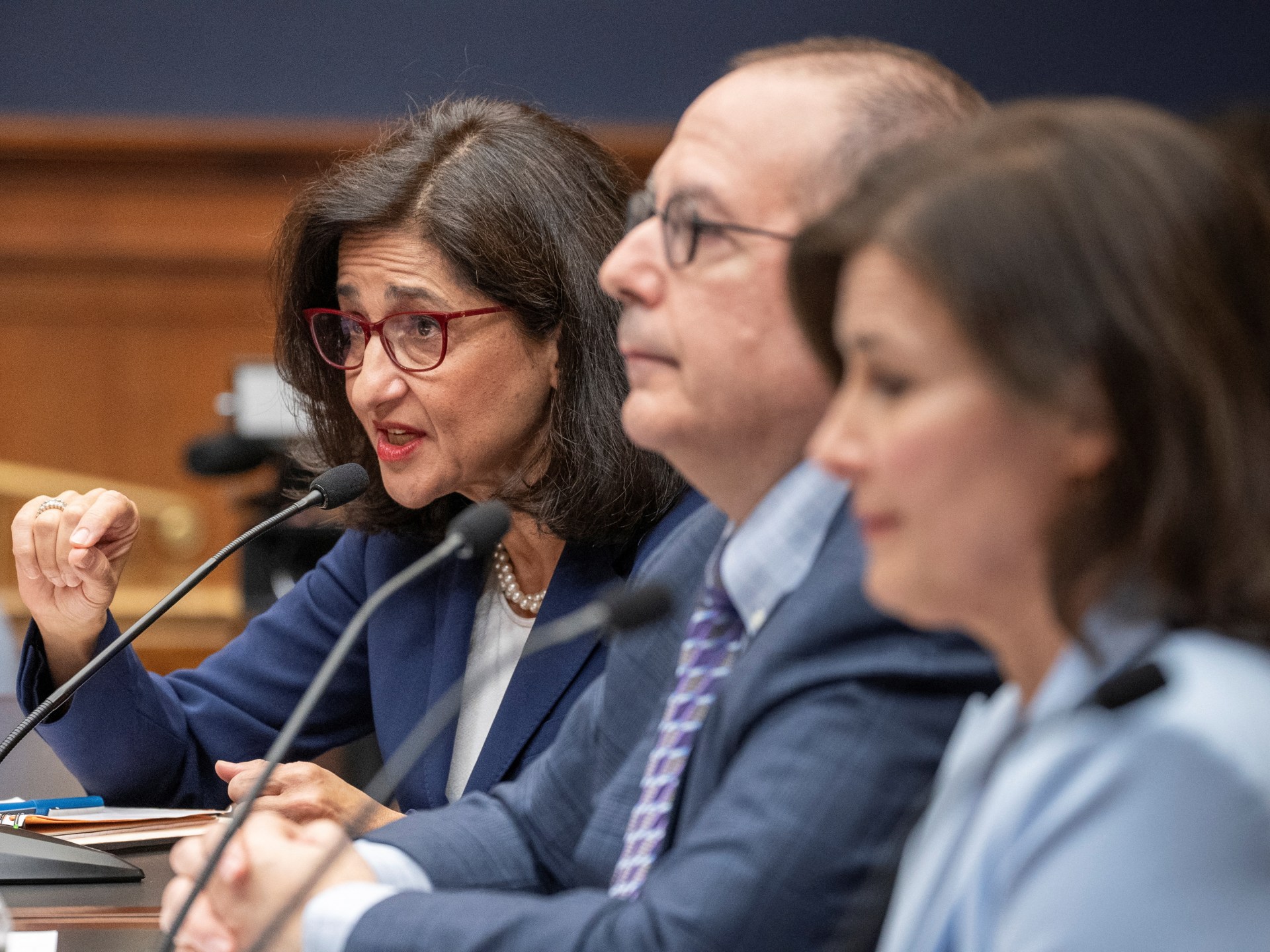
 World1 week ago
World1 week agoColumbia University leaders face scrutiny over anti-Semitism on campus
-

 News1 week ago
News1 week agoHouse passes bill requiring warrant to purchase data from third parties
-

 Politics1 week ago
Politics1 week agoTrump trial: Jury selection to resume in New York City for 3rd day in former president's trial
-
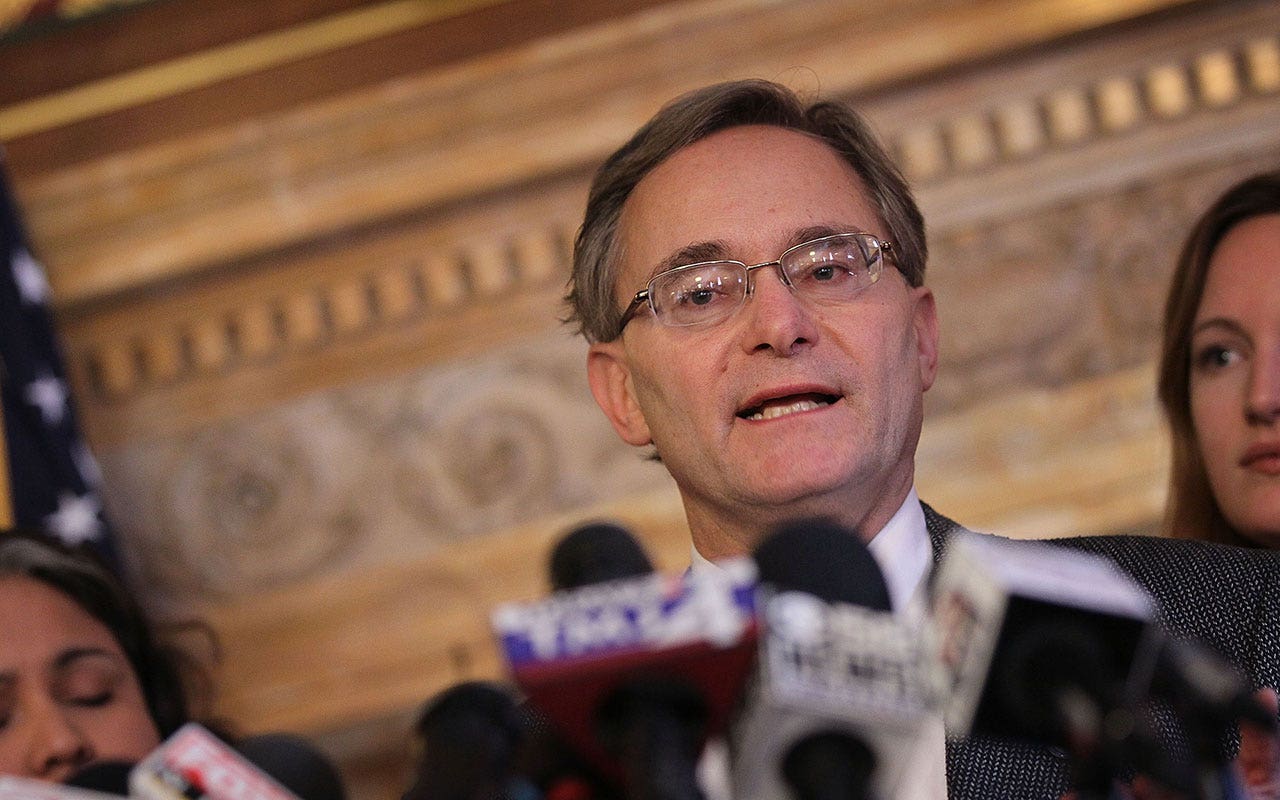
 Politics1 week ago
Politics1 week agoFormer Wisconsin Democratic Rep. Peter Barca launches congressional comeback bid
-
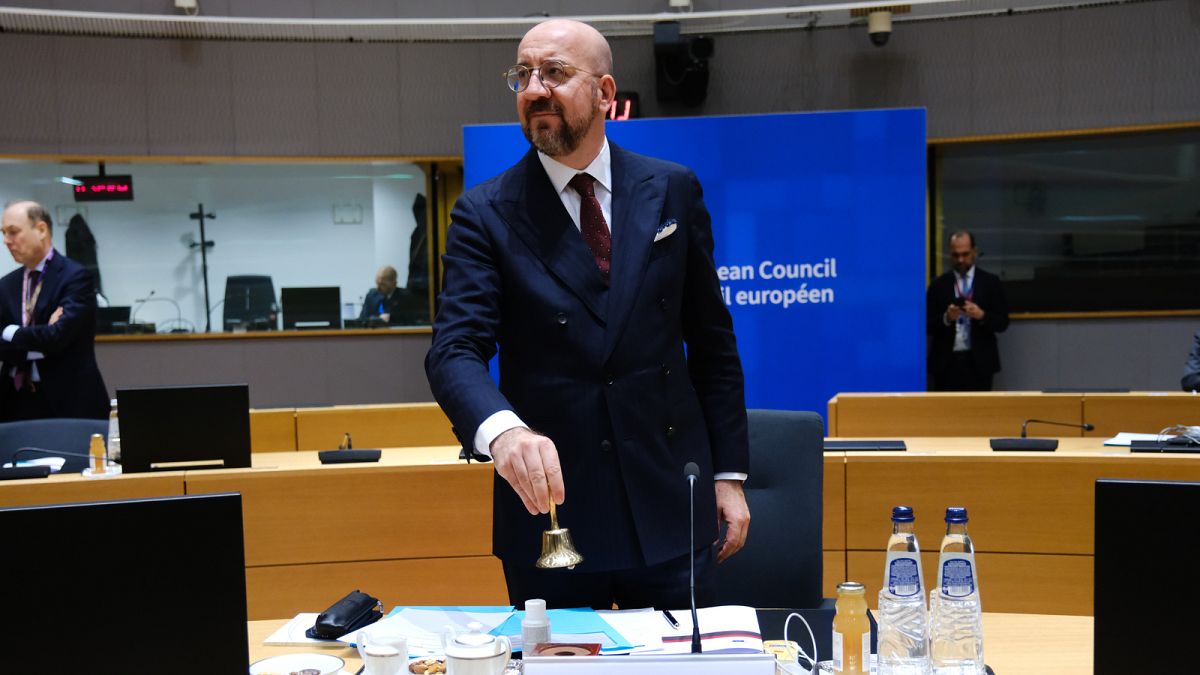
 World1 week ago
World1 week agoEU leaders weigh Lebanon partnership in response to Middle East crisis


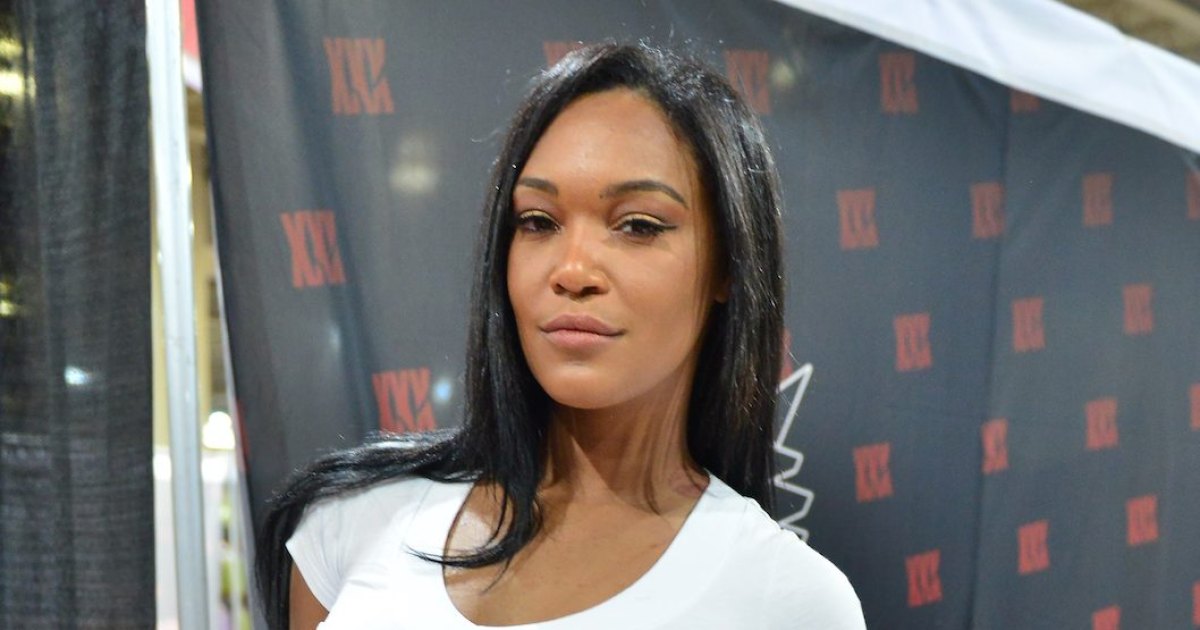






/cdn.vox-cdn.com/uploads/chorus_asset/file/25255185/246965_vision_pro_VPavic_0001.jpg)










